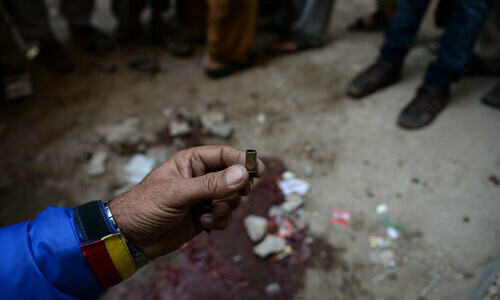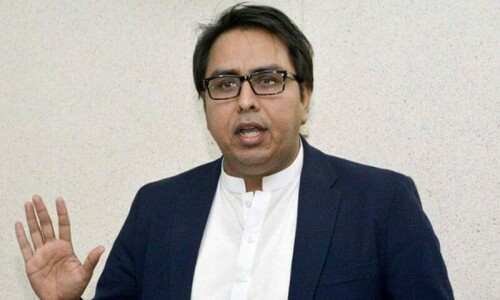LAHORE: Financially stressed out due to the ravages of the Covid-19 pandemic, the Punjab government has allocated only 14.2 per cent of the meagre Rs337 billion development budget for health sector in the provincial budget for financial year 2020-21.
The health sector’s development has been allocated Rs33.62bn – Rs22.15bn for the specialised healthcare and medical education department and Rs11.462bn for the primary and secondary healthcare department.
The government has allocated a total of Rs284.2bnto the health sector,including Rs250.7bn for non-development expenditures.
To fight the coronavirus pandemic, the Punjab government has allocated Rs13bn. Similarly, the health departments also planned to spend Rs12bnto provide Insaf Health Cards to the remaining deserving families out of the 7.2 million across the province.
Only Rs33.6bn reserved for health sector development
The government has allocated Rs26bn for the purchase of medicines as compared to Rs23bn under the same head for the current financial year. It has also allocated Rs6bn for the completion of four hospitals – Nishtar Hospital-II, Multan; Mother and Child Ganga Ram Hospital, Institute of Cardiology, Dera Ghazi Khan; Mother and Child Health Hospital and Nursing College in Mianwali; as well as DHQ hospitals in Dera Ghazi Khan, Gujranwala and Sahiwal.
Funds have also been allocated for new Mother and Child Health Hospitals in Rajanpur, Attock, Layyah and Bahawalnagar.
Funds worth Rs1.7bn have been allocated for the integrated reproductive maternal new born and child health and nutrition programme (Phase-III); Rs1bn for Prime Minister’s Health Initiative; Rs943 million for the infection control programme; Rs934m for prevention and control of hepatitis programme; Rs900m for Punjab Agriculture Food and Drug Authority; Rs257m for TB Control Programme and Rs206bn for Prevention and Control of Non-communicable diseases such as diabetes, hypertension, cancer etc.
University of Health Sciences Vice Chancellor Dr Javed Akram said the next financial year’s budget was “employee-centred instead of patient-centred”. He said a patient-centred budget could offer direct benefits to patients in terms of making more beds and free medicine available.
He said the current circumstances prevailing due to coronavirus required massive reforms to prepare for the pandemic that could continue spreading over the next year.
Expressing concern over the decrease in health sector development budget, Dr Akram said it would be grossly insufficient for Punjab that constituted 70pc of the whole country.
“If we calculate it per capita, the development budget is just peanuts,” he observed.
Commenting on the budget, Pakistan Medical Association Lahore President Dr Ashraf Nizami said nations did face tough times, but it was always a government’s responsibility to focus on basics instead of running after long-drawn dreams.
Since the public sector hospitals were not supporting the ever-increasing coronavirus patients, he said, the situation required that the government engage the private sector medical colleges and hospitals by offering them subsidies and controlling the treatment of Covid-19 patients. Regretfully, he said, no such initiative could be seen in the budget.
He said there was little effort towards improving institutional capacities such as Institute of Public Health, and even a pandemic could not force the government to boost the public health initiatives.
Dr Nizami said the doctors community was demanding the government strengthen the referral system so that the burden on tertiary care hospitals in big cities could be reduced.
SUPPLEMENTARY BUDGET: The Punjab government also announced a Rs168.7bn supplementary budget for the current financial year.
According to the break-up of the supplementary grants, Rs65.8bn have been reserved for the state trading in food grains and sugar; Rs57.6bn for floating debt (discharged); Rs13.8bn for the police; Rs12.9bn for health services; Rs8.2bn for relief; Rs6.3bn for roads and bridges; and Rs4.1bn for all remaining grants.
Published in Dawn, June 16th, 2020
















































Dear visitor, the comments section is undergoing an overhaul and will return soon.